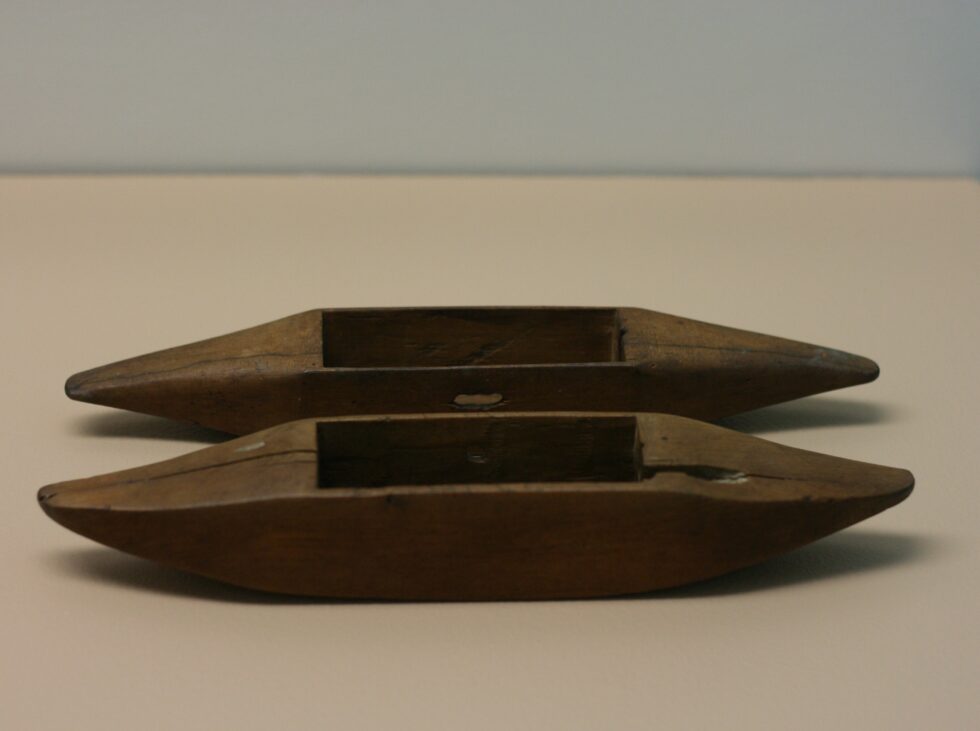Invented by John Hay in 1733 during the beginning of the Industrial Revolution, the flying shuttle became a crucial step in the weaving automation process for textile production. The flying shuttle, used with the traditional handloom, was able to improve weaving efficiency by reducing the amount of weavers from 2-4 operators, down to one. As a result, inventions such as this began to drastically change the backbone of the American economy.

Leading up to the Industrial Revolution, enslaved African American women played a critical role in the development of indigo production. Production of indigo was mainly exported to Britain for their own booming textile industry until 1790 when indigo subsidies collapsed and cotton production started to rise. This came at the cost of enslaved African American women who first began toiling in indigo fields and who then became weavers and spinners. This specialized labor was often reserved for enslaved females due to its domestic features and passed down to future generations. As early as 1745, enslaved women became more valuable for their labor if they were trained to spin and weave. The idea was that the expenses of slavery would be absorbed by the labor of slaves themselves, thereby forcing enslaved women to weave and spin at the attempt to create a self-sustaining slave based economy and textile production.

Flying shuttles looked like an elongated boat often made of dogwood, with an oblong section carved out in the center. The shuttles would contain the weft yarn wound on a bobbin. This shuttle belonging to the Rosenberg Library Museum was donated by the heirs of Dr. J.W. Lockhart and was used by Eveline, an enslaved woman at Lockhart’s plantation in Chappell Hill. There is an inscription on the back of the shuttle that reads, “This shuttle was used by Eveline, the weaver to weave cloth to clothe 75 negro men, women and children slaves of J.W. Lockhart on his plantation near Chappell Hill, Texas during the Civil War, 1861-1865.” Unfortunately, little is known of Eveline or her life enslaved on Lockhart’s plantation. Documentation on the plantation’s enslaved people is scarce. However, it is known that Eveline also served as the handmaiden of Lockhart’s mother.

Although the Industrial Revolution brought improvements and modernization of equipment, weaving and spinning was no easy task. It required attention to detail, sensitivity and delicate interplay of fiber and spindle. It is without a doubt that African American women played a crucial role in the early development of the American textile economy. Much like Eveline’s story, the history of women trained in the craft of weaving is almost all but lost. The plight and hardships that generations of enslaved African American women had to endure should no longer be forgotten or ignored. Their contributions should be acknowledged as the backbone of America’s early economy.
The Treasure of the Month is located on the library’s historic second floor near the East Entrance. It can be viewed during regular library hours, 9:00 a.m. to 5:45 p.m. Monday through Saturday. For museum questions, call 409.763.8854 Ext. 125 or email museum@rosenberg-library.org. For press inquiries, contact the Communications Coordinator.